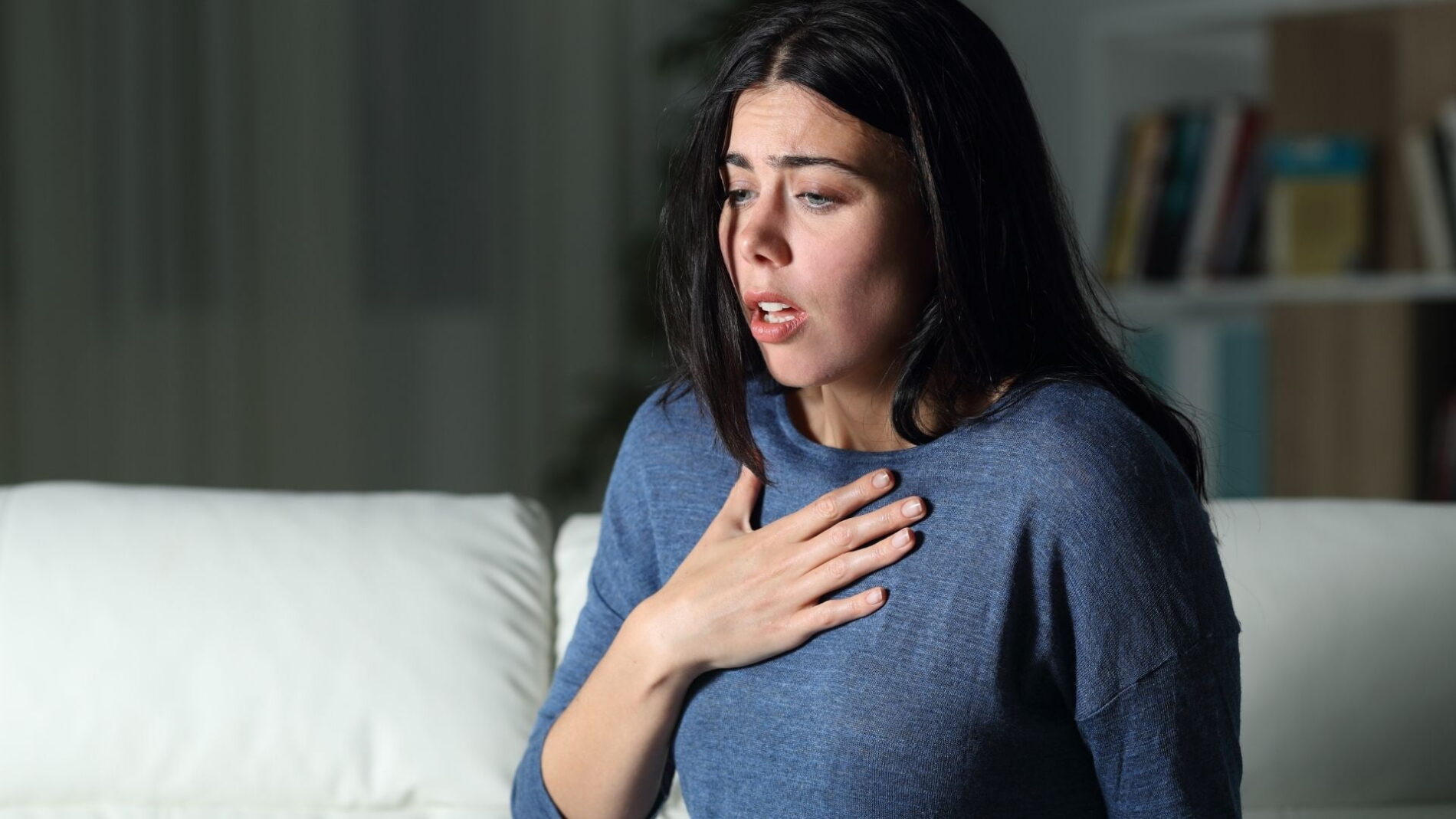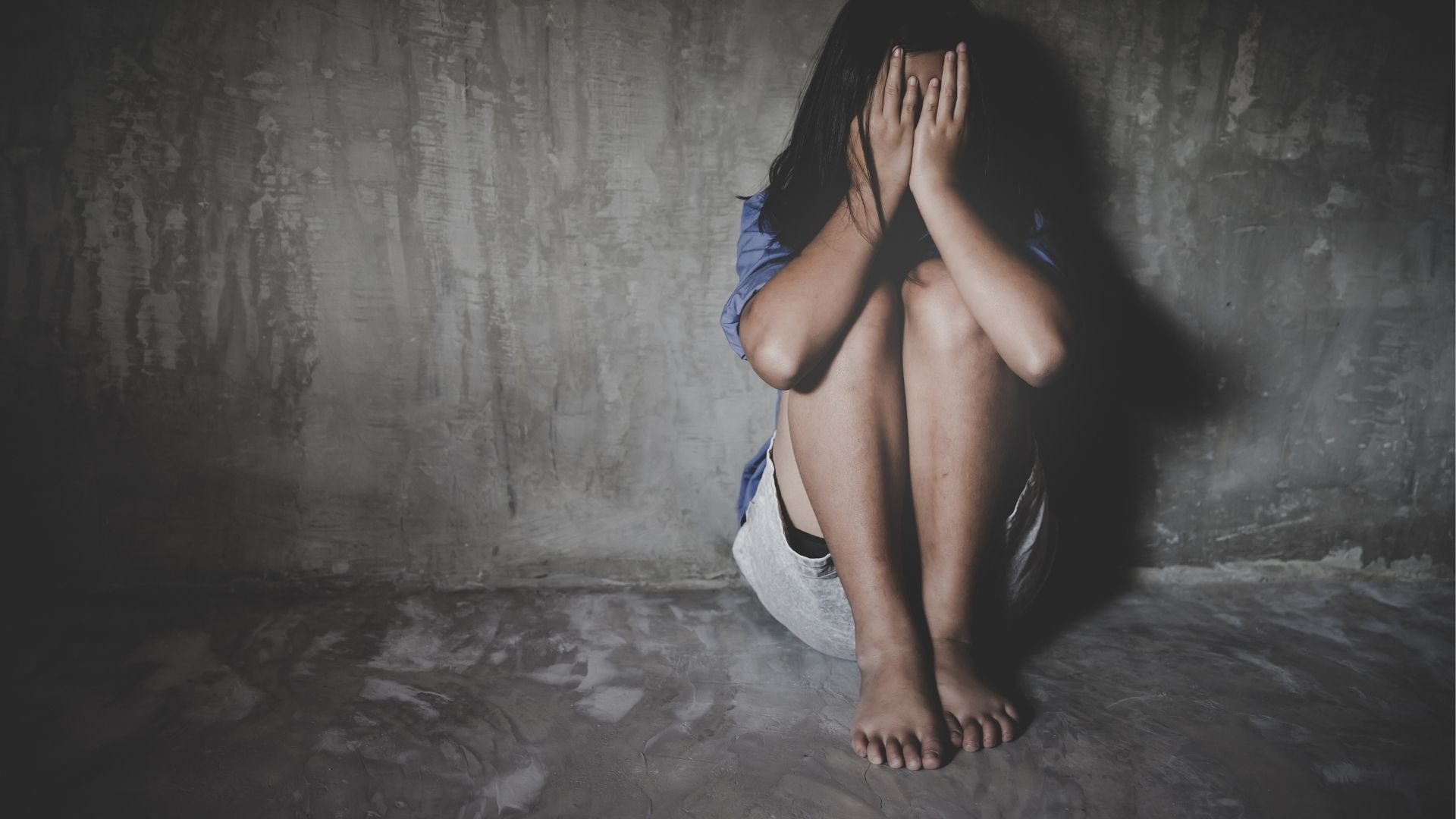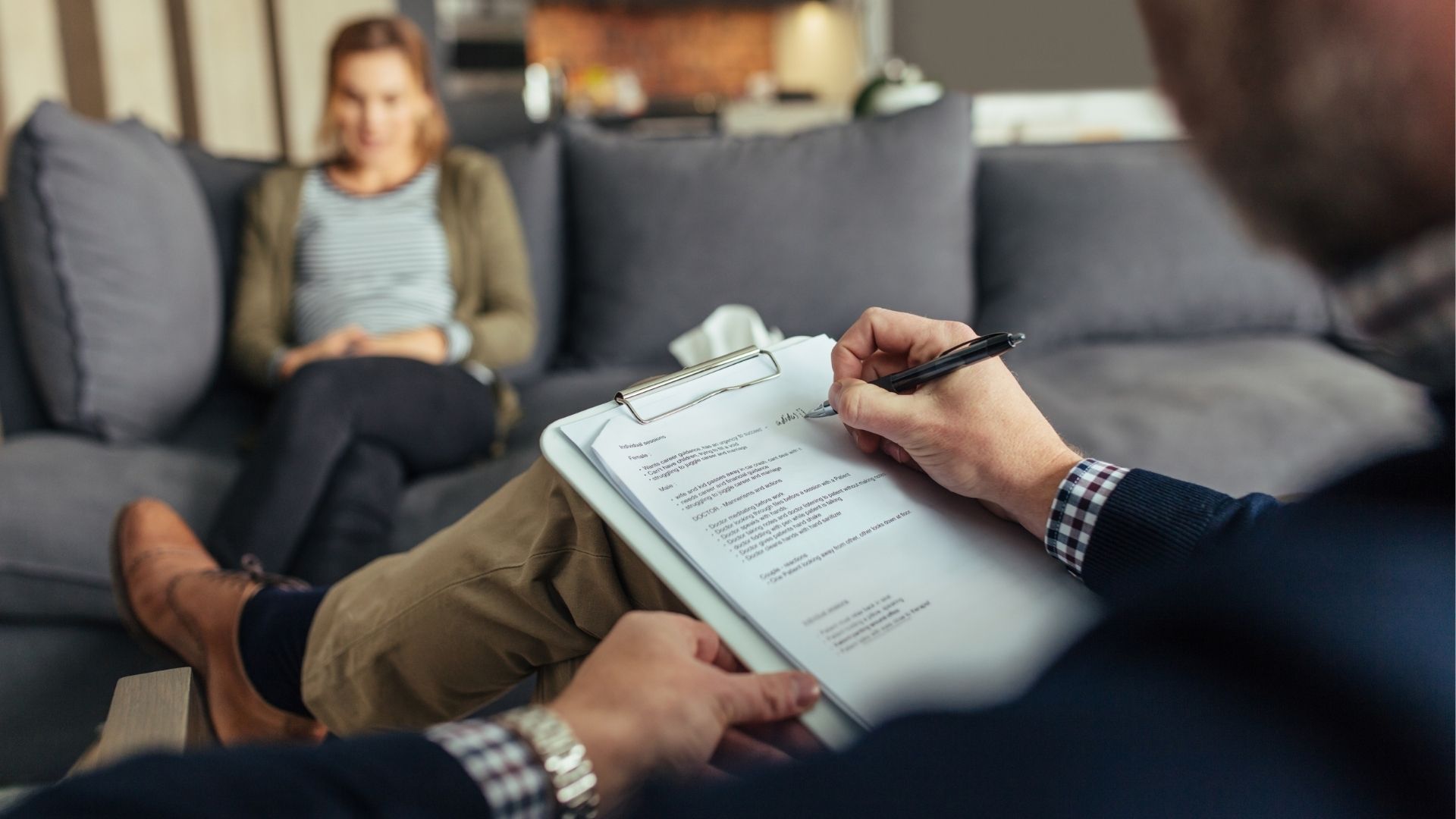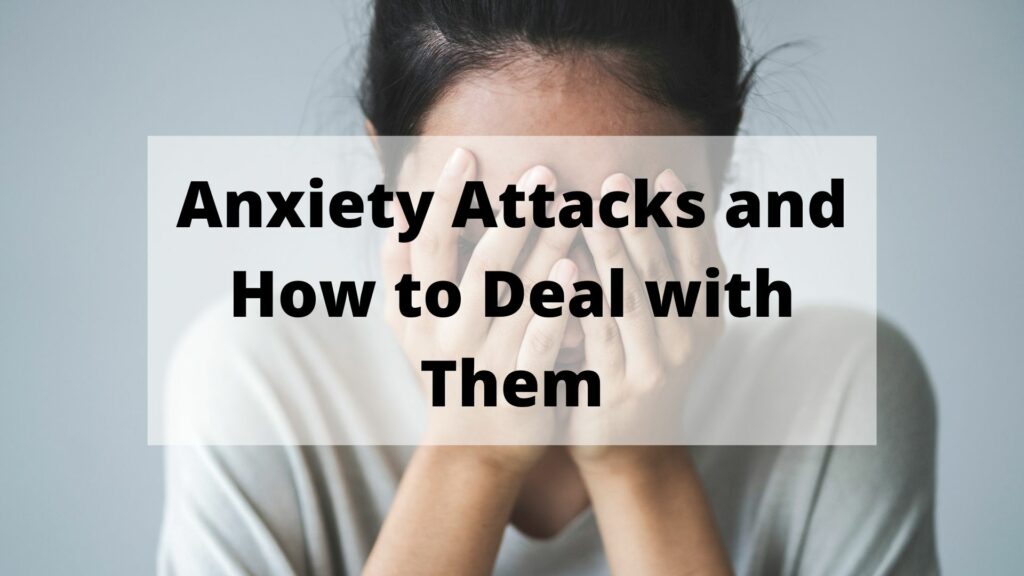Many people experience anxiety attacks at some point in their life. It may seem like anxiety is a phenomenon that only afflicts the mentally ill, but anxiety can affect anyone. Anxiety attacks are very difficult to control because they make you feel out of control and cause physical symptoms such as clammy hands or heart palpitations. If you know how to deal with anxiety attacks, then you will be able to reduce your chances of experiencing one in the future!
Contents
What Is Anxiety?
Anxiety is a disorder in which your body becomes overly stressed and causes physical reactions that can be distressing or painful. They are periods of intense anxiety, fearfulness, panic, and discomfort lasting from minutes to hours. Anxiety disorders affect about 40 million adults in the U.S., making it one of the most common mental health conditions in America today.
They occur when you feel scared or worried for no real reason at all. anxiety attacks are sudden and usually pass in about 15 minutes, but they can be very distressing.
Anxiety is a horrible feeling that makes you feel scared or worried for no reason at all. Anxiety attacks make it seem like your heart stops beating, you stop breathing or both of those things happen to you when anxiety happens.
Often people think anxiety means stress, which it does but there’s more to the story than just being under stress all day every day! Instead, anxiety disorders affect millions of adults around the world with symptoms ranging from sweaty palms and weak knees to heavy feelings on the chest and difficulty catching one’s breath. These physical reactions may lead someone experiencing an attack to believe they are having a medical emergency such as a heart attack. anxiety attacks last from a few minutes to hours and can be so severe that some people become afraid of going out in public or doing everyday activities, such as eating in restaurants or driving their cars.
What Are Anxiety Attacks?
Anxiety attacks are periods of intense anxiety and fear. They can be extremely dangerous to those who suffer from them, as panic-stricken people often do not know what is happening to them or how they should react in these situations.
What To Do In Anxiety Attacks?

First things first: If you believe that you may be suffering an anxiety attack, make sure your surroundings are safe by sitting down somewhere comfortable where it will be easy for somebody nearby to see you and keep a lookout at the same time.
In many cases, this means going outside into the street – away from cars driving past which might cause harm- but depending on severity there may still need to be somebody nearby just in case something goes wrong during your attack! Once satisfied with their safety, let yourself calm down before attempting to do anything else.
These are extremely anxiety-inducing and it’s important not to put yourself at risk of having another anxiety attack by rushing into a potentially dangerous situation, such as going back to work or getting behind the wheel of a car.
Once you have calmed down, try doing some simple tasks that can help reduce anxiety in general – for example, yoga which has been shown scientifically to be an effective way of relieving stress! Meditation also helps calm your mind and body – just taking five minutes out from whatever you’re doing every day could make all the difference when those times come where anxiety starts creeping up on you without warning.
Panic Attacks vs. Anxiety Attacks
People with anxiety disorders frequently report feeling nervousness, worry, and fear which can become extreme enough to trigger an anxiety attack. So what’s the difference between a panic attack versus an anxiety attack?
How do you know whether your symptoms may indicate one versus another? Here we take a look at some key differences. An anxiety attack :
- Can have a specific trigger, such as an exam, workplace issues, a health issue, or a relationship problem
- Is not a diagnosable condition
- Is less severe than a panic attack
- Usually develops gradually when a person feels anxious
- Involves physical symptoms, such as a racing heart or “knot in the stomach“ Panic Attack
A panic attack is typically in association with agoraphobia (the fear of open spaces), as people who suffer from this condition frequently report experiencing anxiety when in public places where help could be difficult to obtain if things take a turn for the worse; however, even those without agoraphobia sometimes feel anxious in these settings as well because their anxiety can still be overpowering.
- does not have a specific trigger
- can be a symptom of panic disorder, a diagnosable condition
- has severe symptoms
- can happen whether a person feels calm or anxious
- involves physical symptoms and feelings of terror so intense that the person fears a total loss of control or imminent death
- often occurs suddenly and unexpectedly and last between a few minutes and an hour, although the negative impact may continue
Intensity
A panic attack is more intense than anxiety attacks in that the symptoms are sudden and often debilitating, but it’s important to note they largely differ because anxiety attacks have no identifiable cause while a panic attack does.
Although different anxiety disorders may trigger anxiety attacks or panic attacks, when you’re experiencing an anxiety/panic episode there is usually some commonality between them – whether it’s situational or not. So how exactly do you know if your symptoms are indicative of one versus another? The biggest distinction lies in knowing the triggers for each type of disorder which vary depending on who has them.
The American Psychological Association’s (APA’s) Diagnostic and Statistical Manual 5th Edition (DSM-V) does not include the phrase “anxiety attack.”
Panic disorder is a condition that causes frequent, unexpected panic attacks. In the DSM-V, however, these episodes are a signal of panic disorder. Only a professional with licensure can decide whether or not you have panic disorder.
Differences In How They Start

Anxiety is a response to worries or dread. It generally develops gradually and causes individuals to be concerned or worried at first. It can range from mild to severe. There may be the sense that if only this issue could be resolved, everything would fall into place.
A panic attack can come without warning, and there is no way to prevent it. It can happen whether you are calm or nervous, and it can even occur during sleep. There is normally no obvious cause, and the degree of fear is out of proportion to the trigger. In reality, according to the APA, the response is unrelated to the event.
Differences In Duration
Anxiety is frequently triggered by a particular scenario. It becomes worse and lasts for a while before dissipating.
A panic attack begins suddenly, peaks after 10 minutes, and then fades away after 30 minutes or so. Although the effects of anxiety can last longer in some cases, this is not typical.
Recognizing Anxiety
If you’re experiencing any of the following seven symptoms and they won’t go away, you may be dealing with an anxiety disorder:
- Are you constantly tense, worried, or on edge?
- Does your anxiety interfere with your work, school, or family responsibilities?
- Are you plagued by fears that you know are irrational, but can’t shake?
- Do you believe that something bad will happen if certain things aren’t done a certain way?
- Are you avoiding everyday situations or activities because they cause you anxiety?
- Do you experience sudden, unexpected attacks of heart-pounding panic?
- Do you feel like danger and catastrophe are around every corner?

Symptoms of anxiety include:
- worry and apprehension
- restlessness
- sleep problems
- difficulty concentrating
- irritability
- sadness
- feeling pressure and hurried
Physical Symptoms
Physical symptoms of anxiety attacks include:
- changes in heart rate
- tension in the head or neck
- headache
- nausea or diarrhea
- sweating
- dry mouth
- tightness in the throat and difficulty breathing
- trembling or shaking
- feeling faint
Not every case of anxiety will include all of these symptoms. Anxiety may be minor, moderate, or severe, depending on the cause and how a person responds to it.
Some people might experience mild anxiety as a result of an examination, while others may have all of the aforementioned issues.
Typically, when the hazard or perceived danger has passed, symptoms disappear.
Excessive worry that persists for a long time or is induced by specific events might be a symptom of another problem.
Anxiety And Depression
Many persons who suffer from anxiety disorders also experience depression at some time. Anxiety and sadness are considered to be linked by a biological vulnerability, which might explain why they so frequently appear together. Because depression makes anxiety worse (and vice versa), both problems should be treated simultaneously.
Causes of Anxiety Attacks
Anxiety often results from stress or feeling overwhelmed.
Common causes of anxiety include:
- work pressure
- financial pressure
- family or relationships problems
- divorce, separation, or bereavement
- concerns about parenthood or being a caregiver
- problems coping with administrative issues or technology
- changing life situations, such as moving house or changing jobs
- reduced mobility or physical function
- loss of mental function, for example, short-term memory
- having a diagnosis of a chronic health condition, such as multiple sclerosis (MS), diabetes, and others
Other Types of Anxiety Disorders

There are numerous distinct types of anxiety disorders. Each one has its own set of symptoms, some of which can be provoked by particular events.
Panic disorder (PD): Those who suffer from panic disorder experience two or more panic attacks per month, with the underlying worry of future assaults. People who suffer from panic disorder may lose their jobs, avoid traveling, or leave their homes due to their anxiety.
Generalized anxiety disorder (GAD): This is a continuous state of anxiety about a variety of events or activities in the individual’s life.
Phobia: The person suffering from this form of anxiety has a persistent, debilitating fear of an object or circumstance (for example, spiders or open spaces). The majority of people with phobic anxiety are aware that their phobia is illogical.
Obsessive-compulsive disorder (OCD): The result of this illness is an overwhelming number of intrusive, unwanted thoughts (obsessions) and activities (compulsions).
Social anxiety disorder: Social anxiety disorder (also known as social phobia) is a serious anxiety disorder characterized by excessive fear of being criticized or ridiculed in public.
Separation anxiety disorder: They may become agitated at just the thought of being away from mom or dad and complain of sickness to avoid playing with friends or going to school.
Tips To Manage Anxiety
Know the signs: If you know when to spot the symptoms that you’re stressed or nervous about, you may be able to do something about it. Headaches, difficulty sleeping, or overeating are all indicators that it’s time for a vacation or assistance.
Know your triggers: You may learn to identify what causes your anxiety if you can figure out what makes you anxious. Perhaps you’ve committed yourself too much? Can you ask someone for assistance? Is coffee or alcohol making the situation worse? Consider reducing your workload.
Diet: A fast-paced lifestyle may lead to too much fast food or insufficient exercise. Make time to sit down to a nutritious dinner, rather than grabbing a burger, especially if you work from home.
Exercise: Excessive sitting may cause discomfort and fatigue. Taking a 30-minute break and going for a stroll each day might help you feel better.
Learn some relaxation techniques: Yoga, meditation, and other stress-reducing techniques can be beneficial. There is some evidence that aromatherapy usage may help with stress reduction, but further study is required.
Try a new activity: Music, meditation, growing or participating in a choir, yoga, pilates, or another group might help you relax and relieve your concerns for a while. You may discover others who are going through similar things and be able to express your feelings with them.
Be social: Alternatively, spend time with friends and family, or seek out a group where you can meet people, for example, through volunteerism or attending a support group.
Anxiety Attacks And Professional Help

Anxiety attacks can become debilitating. They have a tendency to spiral, and when they do not get stopped in their tracks it is easy for the attack to continue until one ends up with a full-blown panic or anxiety disorder. In these cases, professional help needs to be sought out immediately because if left untreated an anxiety disorder will only worsen over time without intervention from a qualified mental health practitioner.
Treatment
Some of the most common treatments for anxiety and related issues include:
- Cognitive-behavioral therapy (CBT)
- medications, such as some types of antidepressants
- support groups for people with specific conditions
Conclusion
Anxiety attacks are a sudden surge of intense fear, worry, and anxiety. The most common symptom is shortness of breath. It can feel like you’re having trouble breathing or even that something bad will happen to your body if the feeling doesn’t go away quickly enough. You might also experience muscle tension (especially in the neck and shoulders), sweating, lightheadedness, feelings of unreality or detachment from oneself; racing thoughts; chest pain; dizziness; numbness/tingling sensations on one side of the body or around certain parts of the face- these may all be signs that someone has an anxiety attack.
For more information, please contact MantraCare. Anxiety is a common mental health condition characterized by persistent feelings of worry, fear, and apprehension. If you have any queries regarding Online Anxiety Counseling experienced therapists at MantraCare can help: Book a trial Anxiety therapy session


